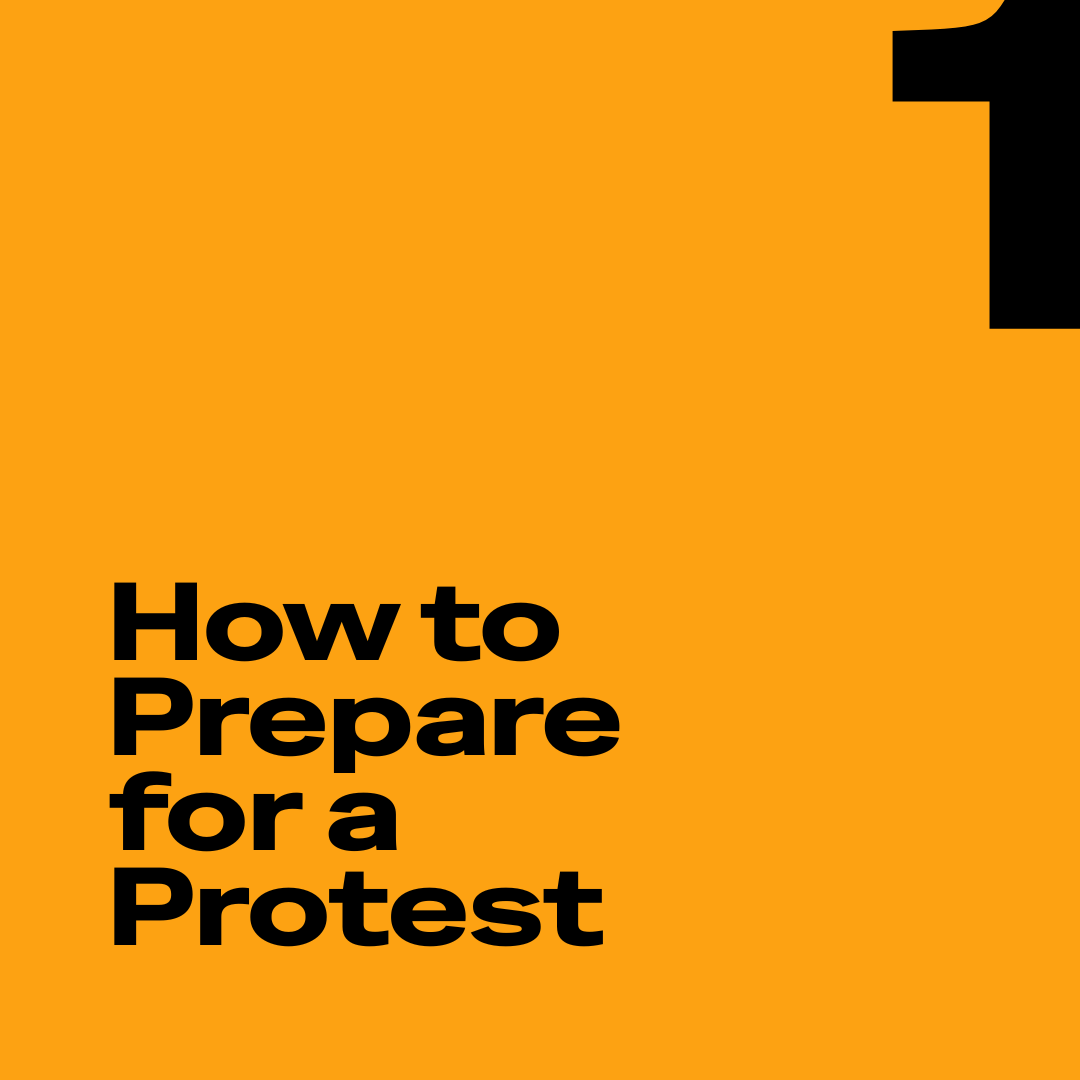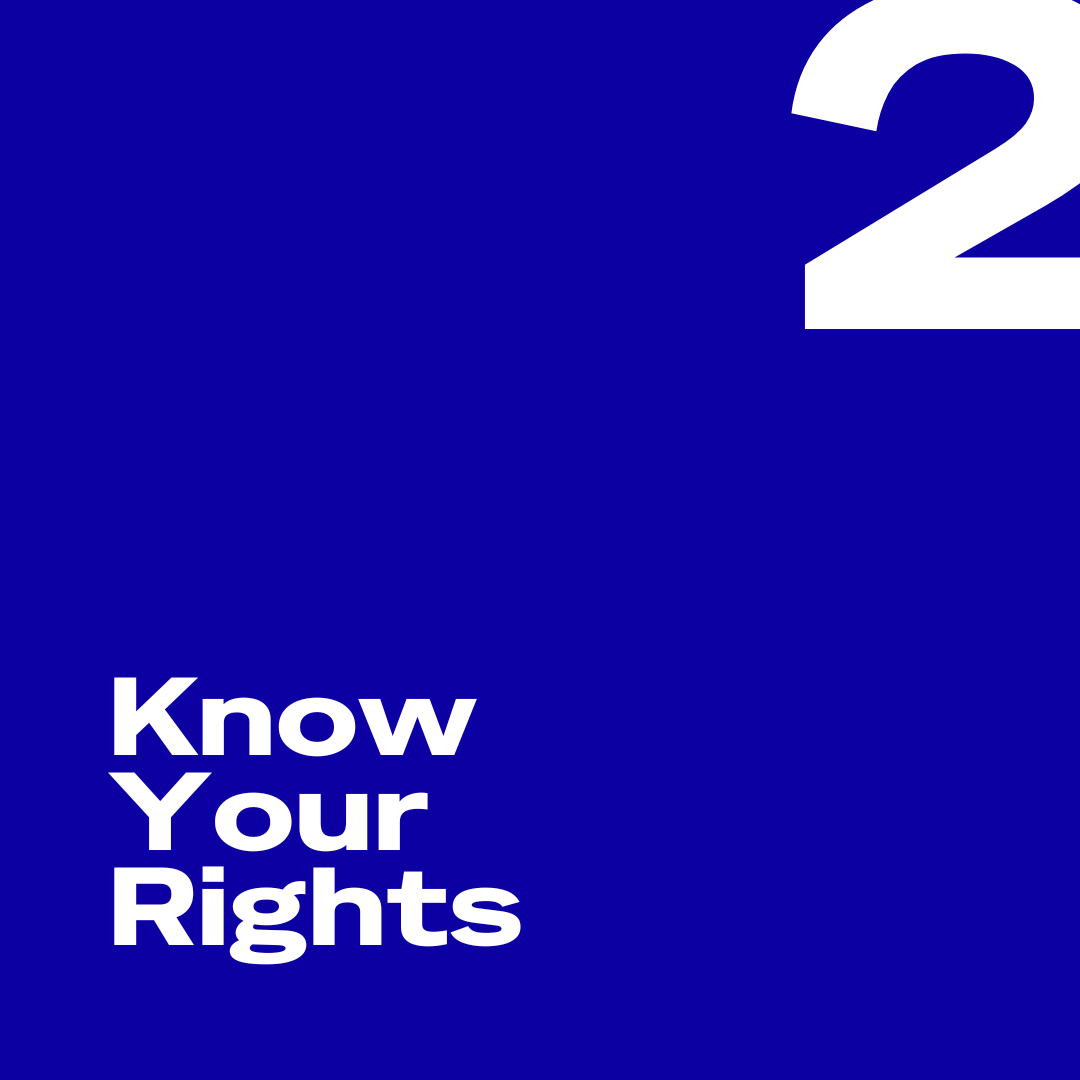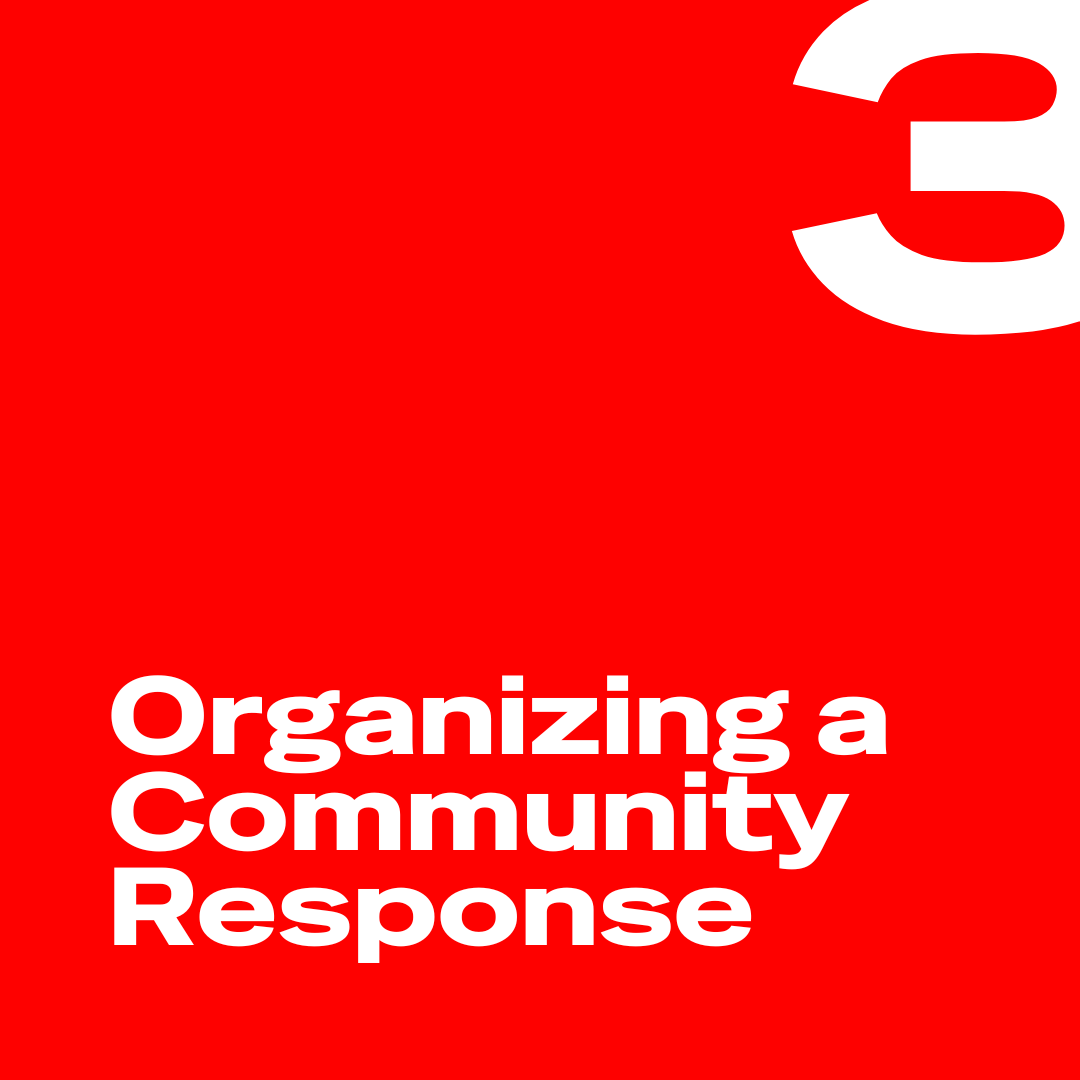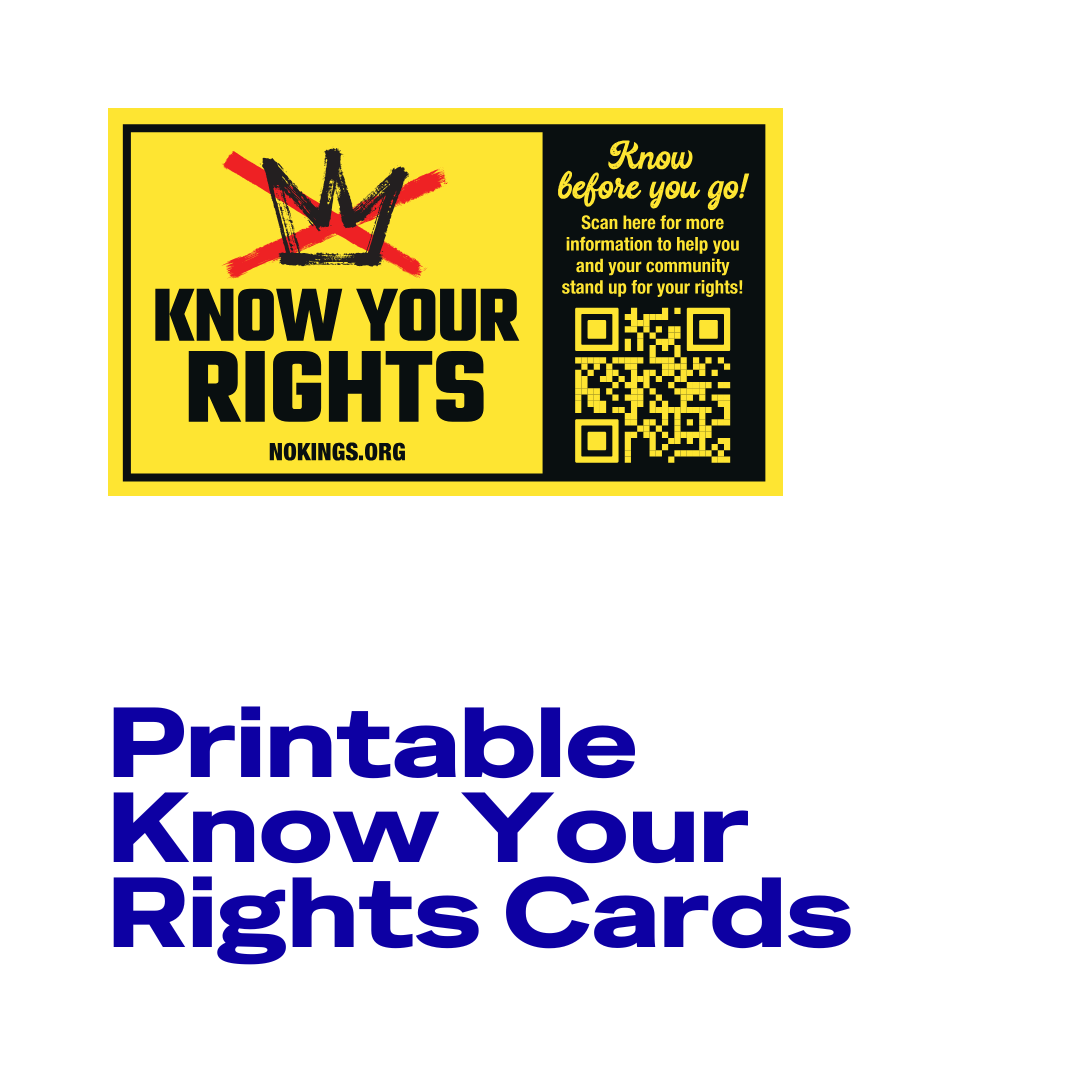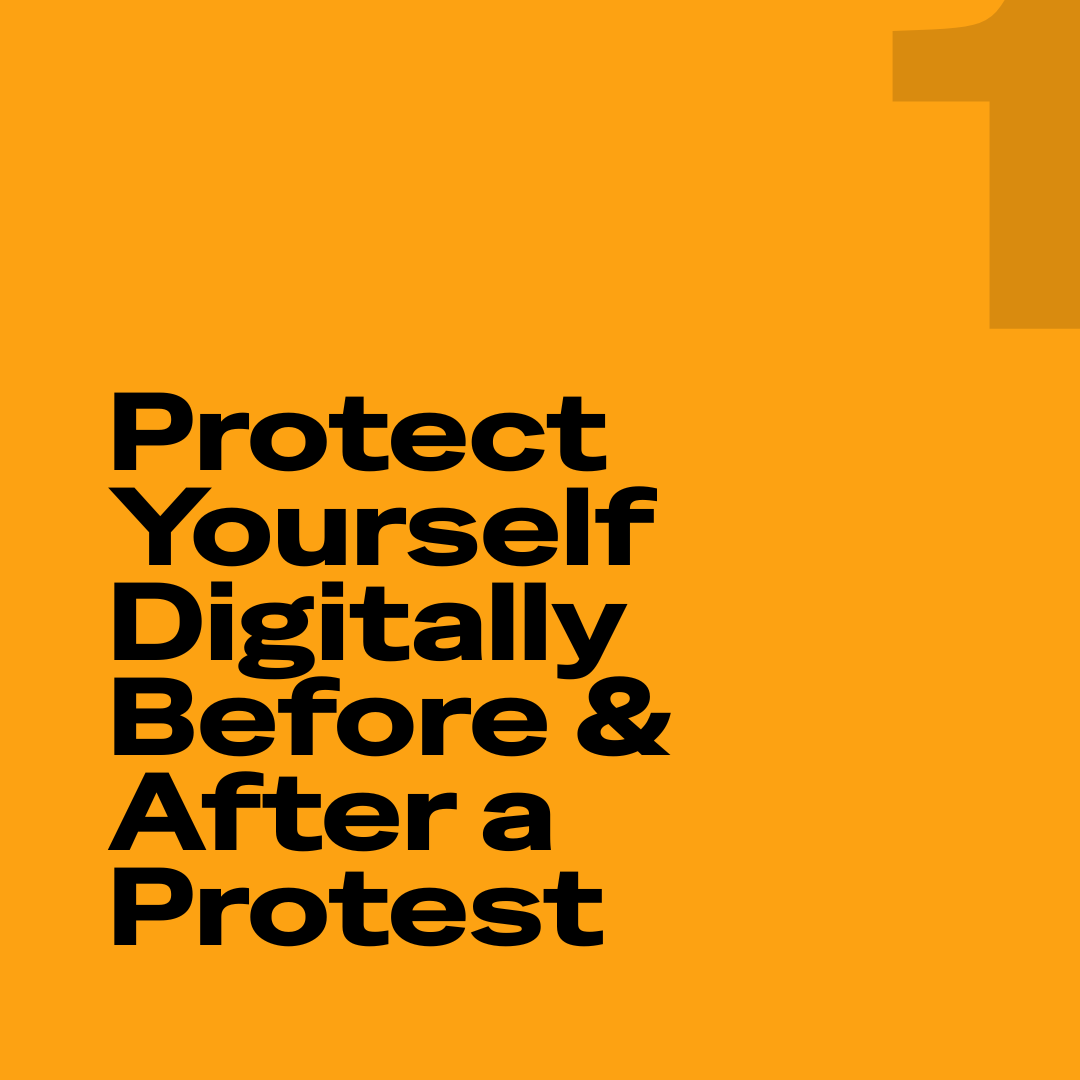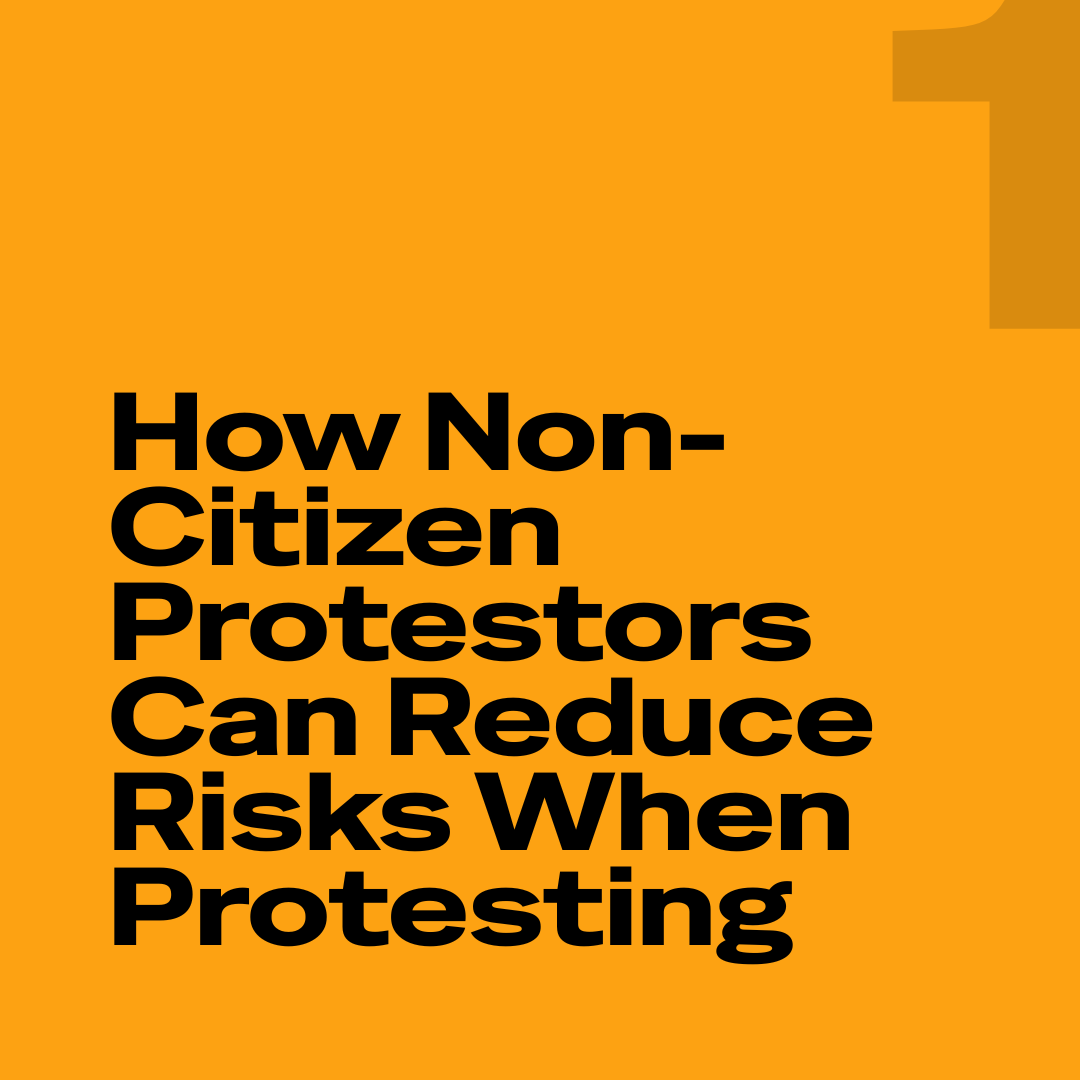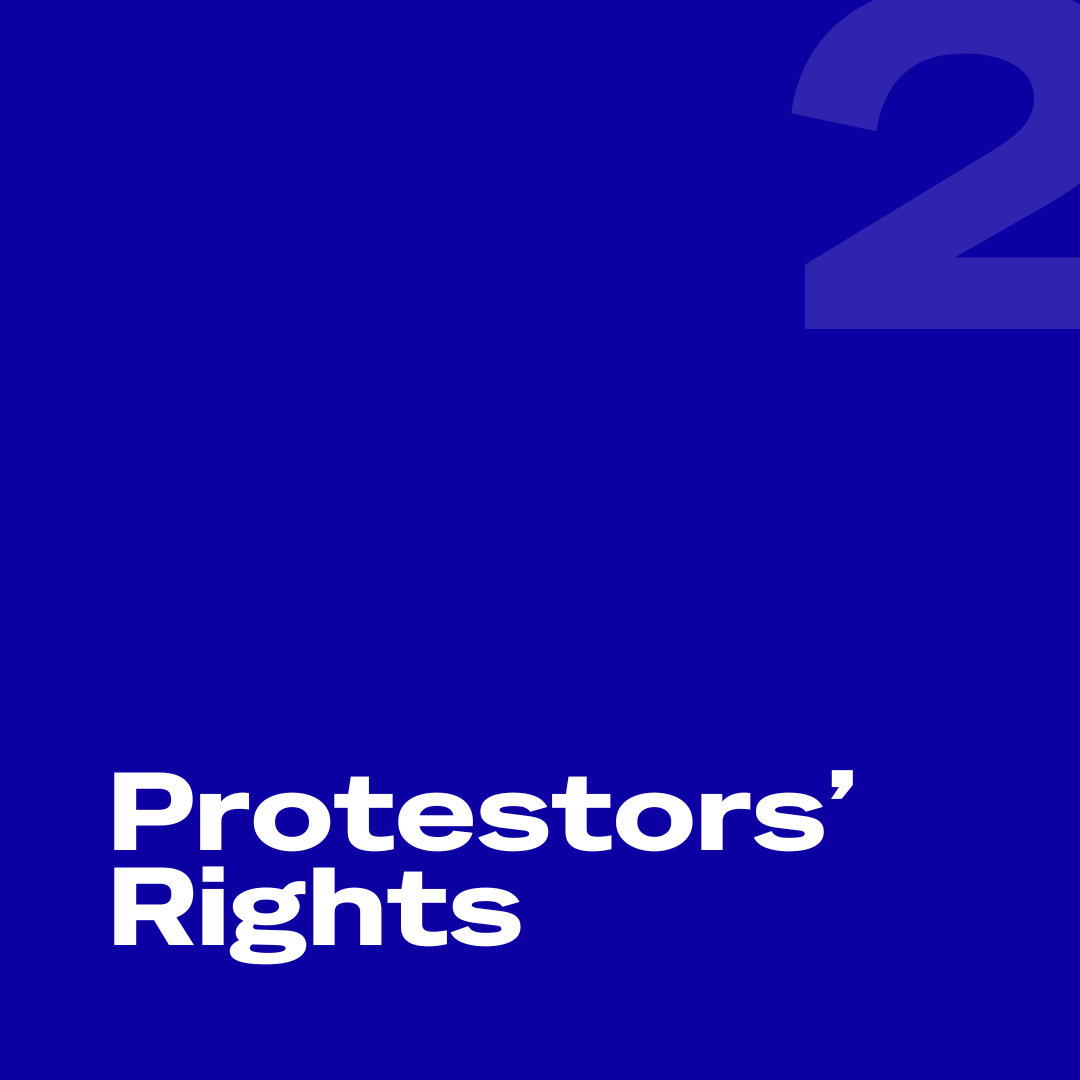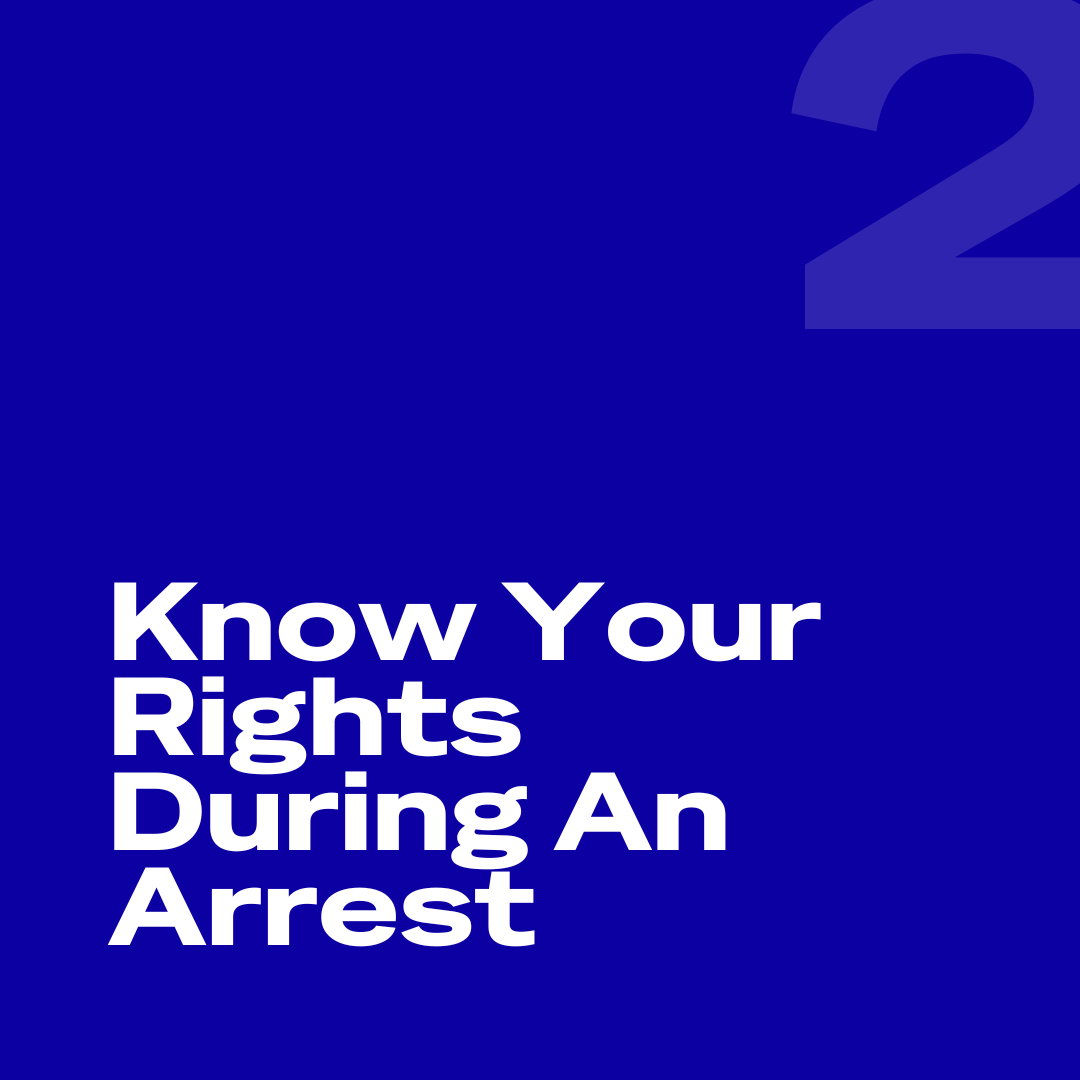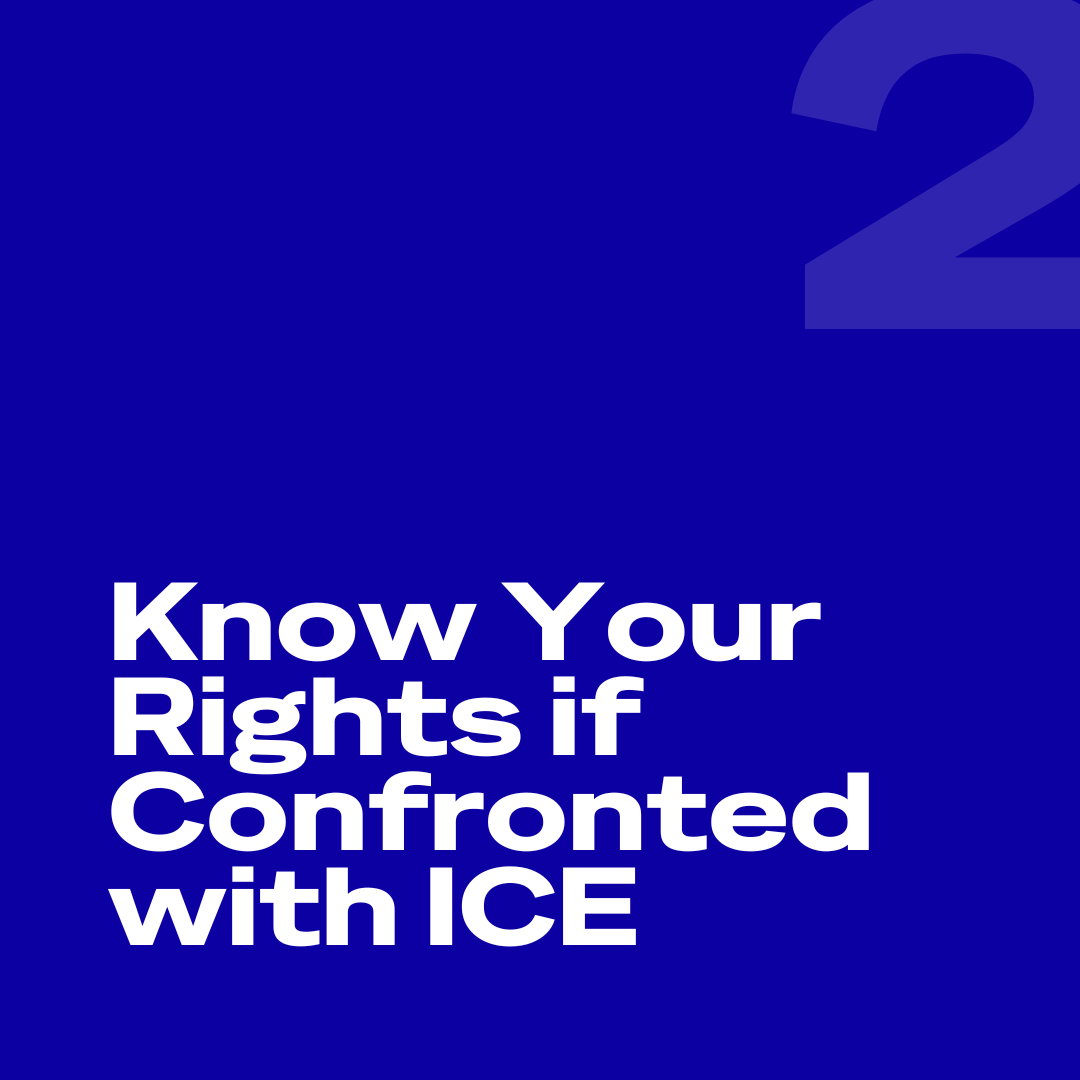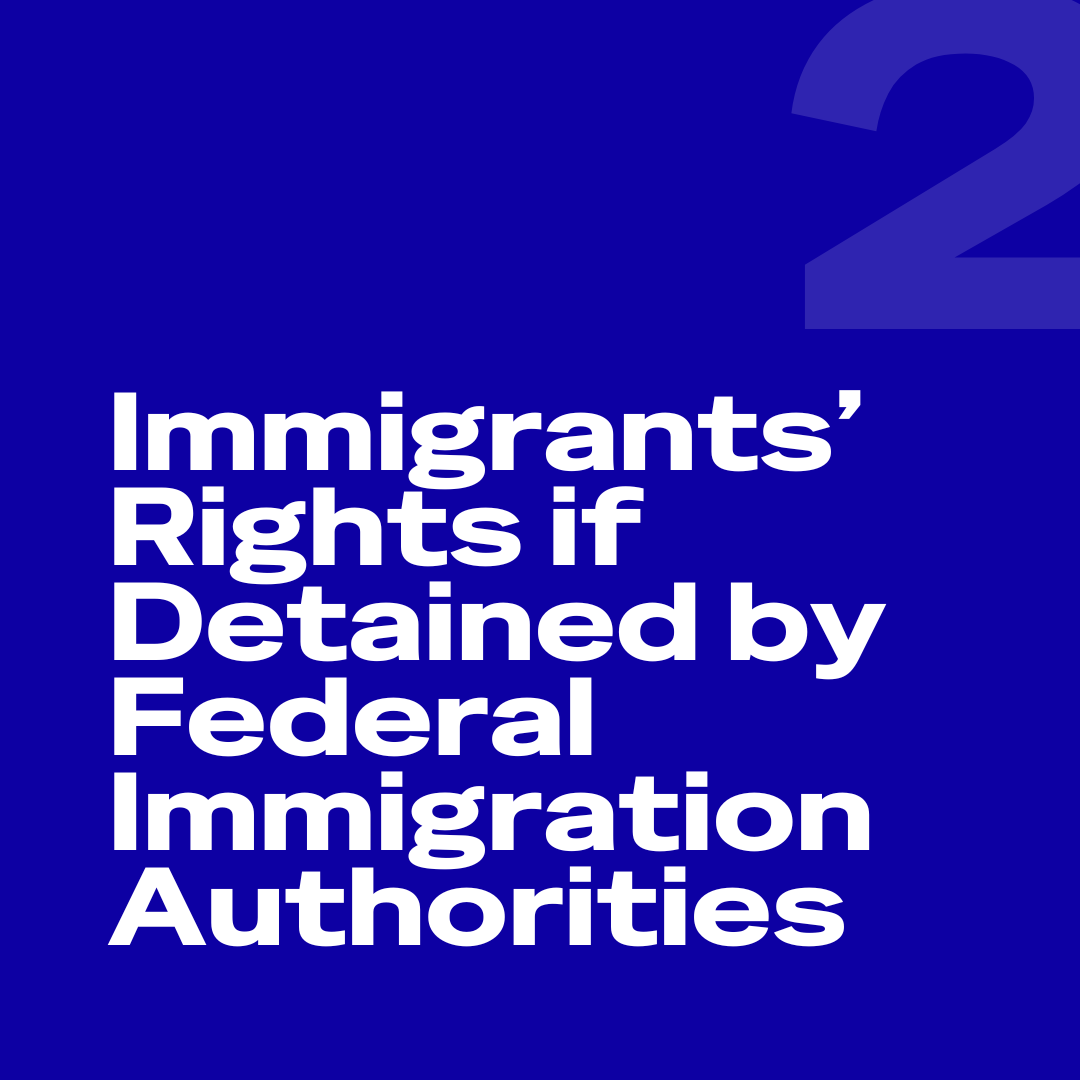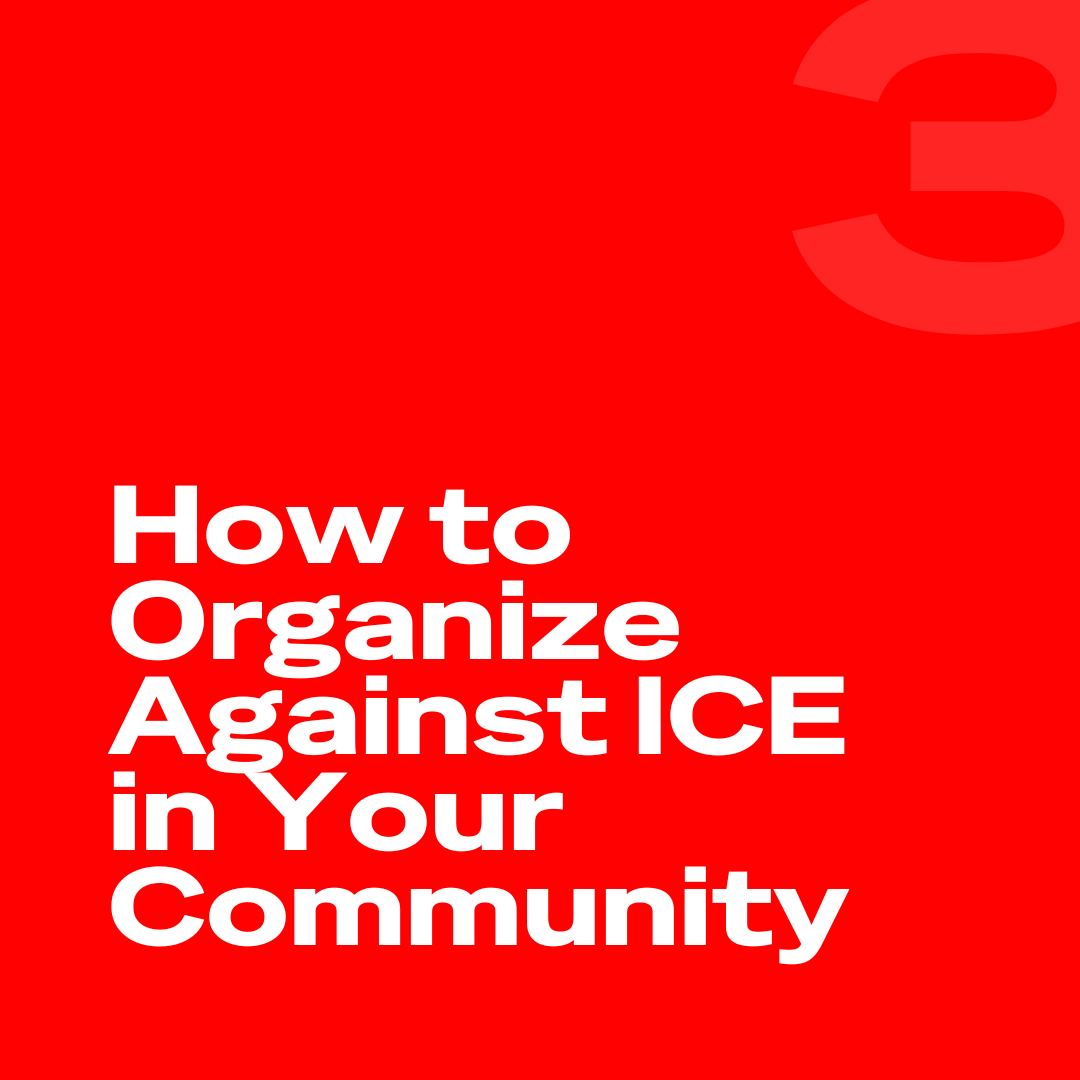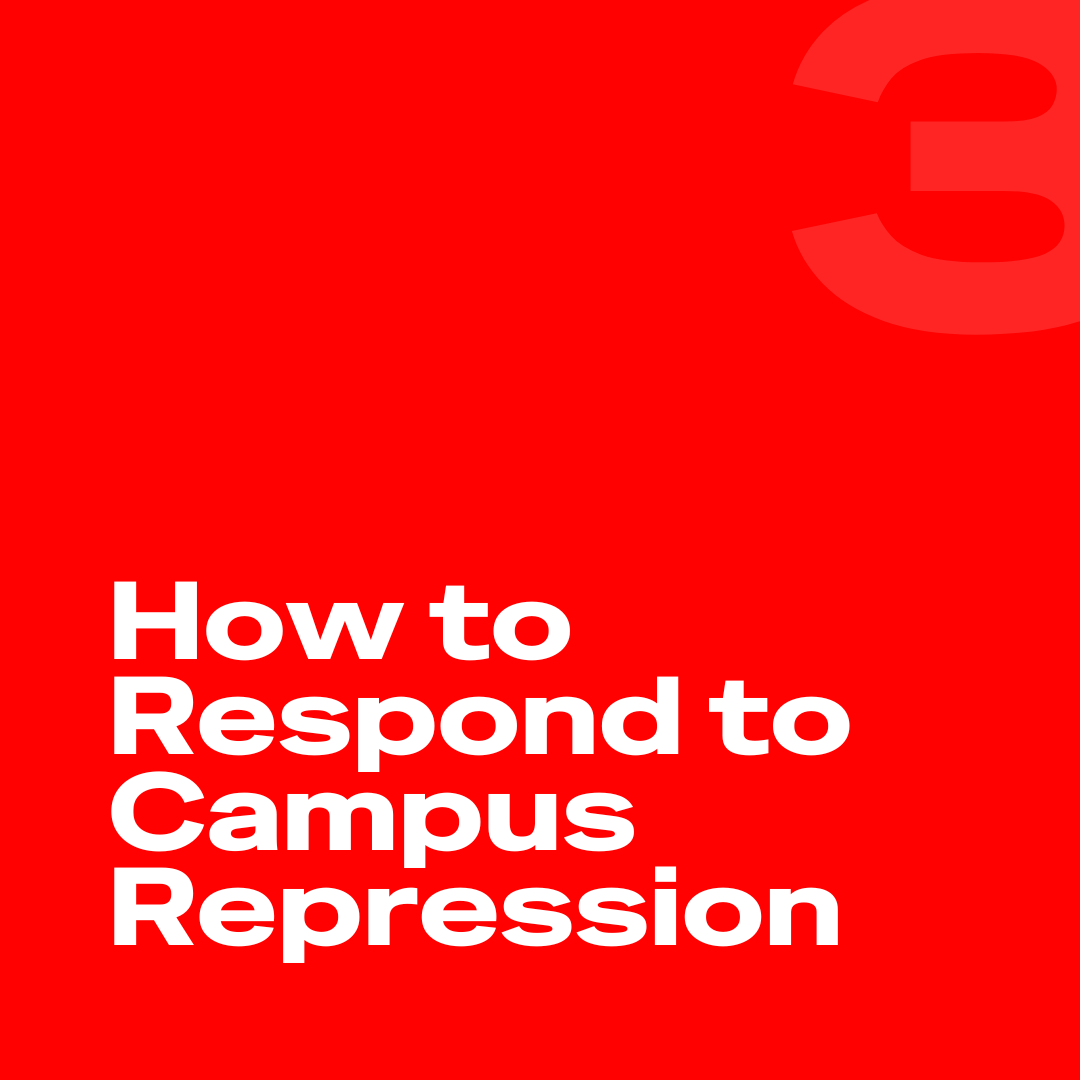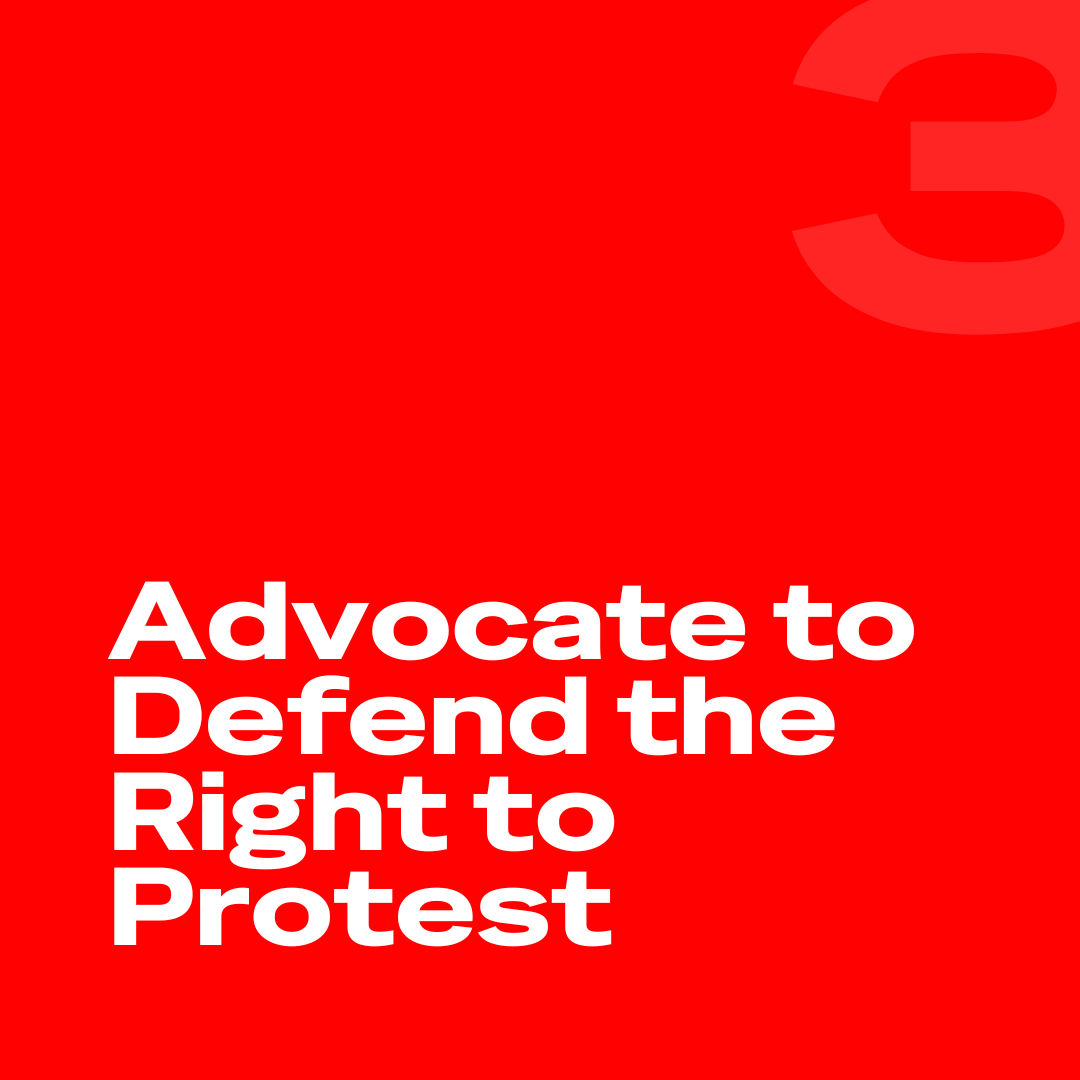Resource Guide
Disclaimer: This document cannot and does not contain legal advice. The information found in this document is provided for general informational and educational purposes only and is not a substitute for professional legal counsel.
Section 1
How to Prepare for a Protest
Protests can be strenuous and intense. They are most effective when we peacefully use our constitutionally protected rights of assembly and speech and properly prepare ahead of time. Use these practical tips to stay safe on the day of the protest.
Prepare Ahead of Time
Dress for the weather, including rain, heat, or cold.
Wear comfortable walking shoes.
Bring a water bottle and snacks.
Bring any medications you might need in the next 24-48 hours.
Fully charge your phone and bring a battery charger.
Ensure you have one emergency contact who knows your location and status!
Know your emergency contact numbers by heart - do not rely on your phone!
Protect Yourself Digitally Before & After a Protest
Encrypt your mobile device.
Remove biometric locking features from your devices and replace them with a strong pin or passcode.
Sign out of any accounts on your device such as email and social media.
Use a secure communication app such as Signal.
Back up your data in case your phone is lost or stolen.
Take videos or photos with your phone locked.
Scrub metadata before you post anything online.
Avoid taking or posting images of protestors’ faces.
Resource
For a more detailed list of recommendations, see the American Friends Service Committee’s Guidelines here.
How to De-escalate and Remain Safe
A core principle behind all No Kings events is a commitment to nonviolent action. We expect all participants to seek to de-escalate any potential confrontation with those who disagree with our values and to act lawfully at these events. Weapons of any kind, including those legally permitted, should not be brought to events.
Identify the threat - not all agitators need to be addressed. Identify the type of agitator and the threat they pose in order to determine if intervention is warranted. Intervening should be based on your personal risk assessment, how much of a disturbance the person is causing, and the threat the agitator poses.
Stay calm - When you see a threat, do not engage, and step away. Alert event organizer or safety lead.
Keep your distance - Record only if it’s safe. Alert event organizer or safety lead.
Avoid confrontation - Step away or help drown them out with chants/songs. Alert event organizer or safety lead.
Remain calm - low tone, non-threatening body language, keep a safe distance
Observe - keep eyes on the person's hands and movements, as well as their proximity to other protesters and/or objects. Are tensions escalating? Are they becoming increasingly irate? Constantly evaluate the situation and adapt to your evolving risk assessment.
Listen - most often people act out and get more upset when they are not heard. Approach the person with curiosity and do not cut them off. Acknowledge where they’re coming from (even if you don’t agree with them).
Redirect attention - where possible, try to get the person to shift their attention to something else.
Create distance - situations typically escalate the more people are involved. If possible, help to guide the person you’re addressing off to the side or at a place further away from the rest of the protestors, without making physical contact.
How Non-Citizen Protestors Can Reduce Risks When Protesting
Please Note: None of the information found here should be construed as legal advice, and you should consult with an attorney or immigration expert about your situation and circumstances.
If you are an adult immigrant with a lawful status that requires you to carry proof of that status at all times, bring that documentation with you.
Have a contingency plan that includes a contact person who knows your location, your status, and who to reach out to for legal support.
Keep a copy of your immigration documents with someone you trust.
Carry a paper document that lists contact information about bail funds and contact information for legal support.
Memorize your immigration number ("A" number) and share it to a trusted contact.
Memorize your contact person’s number.
Resource
ReadyNow! is a free, secure, multi-lingual mobile app designed to help immigrants prepare for possible detention and act quickly in moments of crisis. This app allows you to send one-click emergency alerts via SMS to pre-selected contacts; personalize emergency plans for childcare, medical needs, and legal support; and share key information with National Immigration Legal Response Alliance (NILRA), a national network of pro bono immigration attorneys, if faced with arrest.
While ReadyNow! was designed with the safety and security of its users at its core, no mobile app is completely without risk. If you have questions about privacy or security, review the FAQ page to learn more or email HRF at readynow@humanrightfirst.org.
Section 2
Know Your Rights
As a protestor, you are afforded the constitutional right to peacefully assemble and express your views. Law enforcement, including Federal agencies such as ICE, is often used during times of public dissent. Ensure you are clear on your rights before attending a protest.
Protestors’ rights
The First Amendment of the U.S. Constitution guarantees the right to peaceful protest.
You have the right to protest on certain public property subject to certain localized restrictions.
You have the right to protest on private property if you have the consent of the property owner.
When you are lawfully present in a public space, you have the right to photograph anything in plain view.
Law enforcement may not confiscate or demand to view your photographs or video without a warrant, nor may they delete data under any circumstances.
If you are videotaping, be aware that the audio may be treated differently than the visual due to state wiretapping laws. Be aware of audio recording restrictions in your state.
The First Amendment does not protect acts of protest that become violent or the destruction of property.
Be aware of any curfew restrictions that are in effect.
Depending on your state, you may be subject to laws that prohibit wearing a mask.
These rights apply regardless of citizenship or immigration status, but be aware that the consequences of unjustified arrests may be greater for noncitizens.
Resource
See ACLU’s Protestors’ Rights Guide.
Know Your Rights During An Arrest
Stay calm.
Record what is happening on your phone or ask a bystander to do it.
You have no obligation to speak to law enforcement or answer their questions.
You may invoke your Fifth Amendment right to remain silent. Say “I am exercising my right to remain silent.”
In some states, you must provide your name to law enforcement if you are stopped and told to identify yourself. But even if you give your name, you don’t have to answer other questions.
Ask them “Am I free to leave?” If yes, walk away calmly.
If they say no, tell them you wish to remain silent and ask for a lawyer immediately. Don't give any explanations or excuses. Don't say anything, sign anything, or make any decisions without a lawyer.
Do not lie or provide false documents to law enforcement. Lying to federal agents is a crime and can carry severe consequences.
These rights apply regardless of whether the law enforcement agency is local, state, or federal. They also apply to questioning by the National Guard or other military troops.
After You Are Released
When you are able, write down everything you remember, including officers’ badges and patrol car numbers, which agency the officers were from, and any other details. Get contact information from witnesses.
If you’re injured, seek medical attention immediately and take photographs of your injuries.
If needed, file a written complaint with the agency’s internal affairs division or civilian complaint board. In most cases, you can file a complaint anonymously.
If you have been arrested by police, you have the right to make a local phone call. The police cannot listen if you call a lawyer.
If you are arrested for a crime, you have the right to a government-appointed lawyer.
Resources
For a list of resources and a directory of pretrial bail funds, see the National Lawyers Guild for more information.
If you feel your rights have been violated by a federal law enforcement agent, you can reach out to the National Lawyers Guild federal repression hotline at 212-679-2811 for a free, privileged consultation about your rights, risks, and responsibilities, and to be connected with appropriate legal resources in your jurisdiction.
Know Your Rights If Confronted by ICE
Please Note: None of the information found here should be construed as legal advice and you should consult with an attorney or immigration expert about your situation and circumstances.
Stay calm.
You have the right to remain silent and do not have to discuss your immigration or citizenship status with police, immigration agents, or other officials. Anything you tell an officer can later be used against you in immigration court. If you wish to exercise that right, say so out loud. (In some states, you may be required to provide your name if asked to identify yourself).
Confirm it's actually ICE. Ask for badge number, name, and the agency they work for.
Record what is happening on your phone or ask a bystander to do it.
Adult non-citizens granted a lawful immigration status (like a visa, or green card) must carry their immigration papers with them at all times. If requested by an immigration agent, they must state their status and show their documentation.
Nobody should ever present false documents or lie to an official about their status.
If an immigration agent asks if they can search you, you have the right to say no. Agents do not have the right to search you or your belongings without your consent or probable cause.
Ask them “Am I free to leave?” If yes, walk away calmly.
If it's safe, take notes of the interaction.
You have the right to a lawyer. If arrested or detained say, “I need to speak with my attorney.”
Resources
See the National Lawyers Guild resource, ICE on University Campuses: Know Your Risks & Fight Back for more information. You can also visit the ACLU’s Immigrant Rights Guide.
Immigrants’ Rights if Detained by Federal Immigration Authorities
Please Note: None of the information found here should be construed as legal advice and you should consult with an attorney or immigration expert about your situation and circumstances.
You have the right to consult with a lawyer, but the government is not required to provide one for you if you are charged with a civil immigration offense, rather than a crime.
You have the right to contact your consulate or have an officer inform the consulate of your detention.
Don't discuss your immigration status, where you were born, whether you are a US citizen, or how you entered the country, with anyone but your lawyer. While you are in jail, an immigration agent may visit you.
Do not answer questions or sign anything before talking to a lawyer. Read all papers fully. If you do not understand or cannot read the papers, tell the officer you need an interpreter.
While you are in jail, an immigration agent may visit you. Do not answer questions or sign anything before talking to a lawyer.
Resources
National Immigration Law Center’s know your rights guidance; See NILC's guide on how to find a loved one if they’ve been detained.
Section 3
Organizing a Community Response
Building power requires more than individual action; it demands community organization and collaboration. Our power is always greater when we band together and ensure we’re on the same page. Organizing a response involves connecting with local groups, sharing resources, and establishing clear communication channels to ensure everyone remains safe and effective.
A core principle behind all No Kings events is a commitment to nonviolent action and no civil disobedience. We expect all participants to seek to de-escalate any potential confrontation with those who disagree with our values, and to act lawfully at these events. Weapons of any kind, including those legally permitted, should not be brought to events. All events should be held in public spaces or on public property.
How to Prepare for a Rapid Response Rally
Define your message in clear, concise terms.
Ensure that you have permission to use the chosen location for the event, including obtaining permits when required.
Create a dedicated team to coordinate your event.
Plan out your resource needs and prepare ahead of time.
Prepare a safety plan.
Create a contact list for participants that can be mobilized day of.
Create a media contact list, including partners you’ve already built relationships with
Select your day/time/location (i.e,. 5pm local time on the day of the rights violation)
Select your speakers - give parameters on time and content.
Provide updates via social media.
Bring a table and provide information to your attendees.
Resources
For a full checklist, see Indivisible’s Protests and Rallies Toolkit and this rapid response toolkit.
How to Organize Against ICE in Your Community
Organize a vigil for immigrant and constitutional rights to draw public attention to the issue.
Host a Know Your Rights teach-in to better equip activists with tools and information.
Hold training safety seminars for local businesses in preparation for an ICE raid.
Build relationships and be present in targeted areas.
Talk to your local Sheriff and urge them not to support ICE in disappearing our neighbors.
Resources
See this toolkit on organizing a vigil; See this resource on how to engage sheriffs on ICE cooperation; Join the NDLON organizing program to Adopt A Corner by establishing relationships with day laborers, showing solidarity, and providing support.
How to Respond to Federal and/or National Guard Occupation
Form a local rapid response network or get plugged into an existing one.
Organize a Know Your Rights training.
Plaster your city with visual displays expressing opposition, with awareness of local rules/regulations.
If you are a veteran, record a video to share with your community, calling out this federal overreach.
If you are an elected official, demand transparency. Push back with legal and political tools.
If you are a member of the general public, demand accountability from elected leaders at every level of government. Apply pressure on state leaders: Governors, state representatives, state senators, etc.
Remember: No matter what uniform they wear, law enforcement and military troops are bound by the Constitution.
Resources
See the Chamberlain Network’s talking points guide and their form to submit a video sharing veterans’ voices; Indivisible’s guide on ways to push back; and the ACLU’s Know Your Rights When Encountering Law Enforcement and Military Troops resource.
How to Respond to Campus Repression
Please note: University campuses are not generally public forums, and every university sets its own policy to restrict access to campus for safety or other reasons. Check with your university before planning an event or activity on campus.
Host a Know Your Rights workshop for students, staff, and faculty to prepare for ICE on campus.
Join a student organizing movement to push back against authoritarian practices.
Create a sign-on letter or petition to campus leaders, pressuring them to pass a resolution protecting the right to protest.
Host events and campaigns to generate engagement on your local campus.
Resources
Use AIUSA and ACLU’s Firewall for Freedom Resolution Toolkit to learn how to pass a campus resolution; See Frontline for Freedom on how to join a network of students & movement partners organizing campuses to resist autocratic attacks on our rights; Use this guide by NLG to learn more about ways to push back on ICE on campuses.*
*Be aware that sometimes the assertive exercise of constitutional rights carries risks. In particular, ICE is threatening, and in some cases already taking, aggressive legal action against people who report ICE’s presence and those who record and broadcast videos and photos of ICE agents working in public. As the guide notes, understanding the rights and the risks can help you make an informed decision regarding how to push back against campus repression.
Advocate to Defend the Right to Protest
Learn more about the attacks on your First Amendment rights by tracking anti-protest legislation.
Protect your right to protest by joining a state advocacy campaign.
Join a Federal campaign protecting the right to dissent by applying pressure on Congress to support bills like the Protecting Our Protestors Act of 2025.
Resources
Track anti-protest bills by using Human Rights First’s (HRF) Democracy Watch tracker. Join HRF’s and AIUSA’s efforts to protect the right to protest by using this advocacy toolkit.

